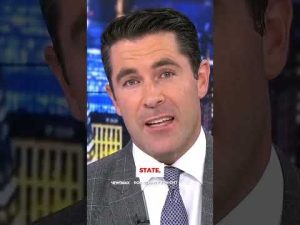Britain’s foundations look shakier than they have in generations as the promised national inquiry into group-based child sexual exploitation has blown off course, raising real fears of unrest among working families and survivors who were finally promised justice. What should have been a decisive, transparent effort to get to the truth has instead been bogged down in bureaucratic wrangling over remit and the refusal — or inability — to appoint a credible chair, a collapse of political leadership that only deepens public anger.
The damning audit by Baroness Louise Casey laid out a catalogue of institutional failures: authorities “shied away” from recording the ethnicity of perpetrators, data collection is a disaster, and local evidence suggests disproportionate representation of men of Asian heritage among suspects in several northern forces. The government accepted Casey’s recommendations and promised a statutory inquiry, yet acceptance on paper is not the same as action, and survivors rightly ask why months after the pledge there is still no clear path to justice.
Instead of steady leadership, we have the spectacle of feeble follow-through and furious MPs demanding answers while survivors watch the clock tick and fear this probe will be softened into bureaucratic theater. Opposition and even some from within Labour are losing patience as the political class dithers, giving the sense that Westminster’s instincts are still to protect institutions rather than victims. That evaporation of trust is exactly how civic order frays.
Adding fuel to the fire, the Prime Minister’s record has been grotesquely politicized, with billionaires and social media mobs amplifying charges while the Prime Minister insists he has acted on these crimes during his time as chief prosecutor. Whether you approve of the theatrics or not, the reality is that the public sees a gap between words and results — and when public anger meets institutional inaction, you get a dangerous mix. The back-and-forth between activists, online titans, and official denials has not calmed the country; it’s made truths harder to reach.
Baroness Casey’s blunt observation that ethnicity had been “shied away from” is a devastating indictment of the political correctness that has hollowed out accountability in Britain. When officials are cowed by the fear of being branded racist, hard questions about patterns of crime go unanswered and communities are left less safe — that cowardice is a political choice with human victims. Conservatives have been warning for years that punishing honest debate in the name of social harmony actually corrodes it.
Meanwhile, the mainstream broadcaster that was supposed to be Britain’s trusted voice is under fresh scrutiny, undermining confidence in institutions the Left claims to defend. Ofcom has sanctioned the BBC over a documentary that failed to disclose material ties, and broader critiques about editorial bias and the corporation’s cultural posture are now mainstream talking points. When the national broadcaster looks like it is defending an ideological line rather than reporting facts, ordinary citizens naturally turn elsewhere and distrust swells.
Border and law-enforcement failures compound the problem; ministers and communities report that porous edges to the state — whether through immigration mismanagement or inconsistent policing — are eroding public trust in government’s capacity to protect its people. Even senior figures in charge of domestic security have warned that border failings are undermining faith in the nation-state, which only heightens the sense that the political class has lost its grip. This is not abstract theory; it’s a recipe for civic fracture if leaders don’t respond with competence and resolve.
The choice for Britain is stark: either the government stops performing and starts delivering — appoint a robust chair, give the inquiry teeth, secure borders, and restore the right to honest public debate — or it watches public anger metastasize into the kind of unrest no patriot wants to see. Conservatives should not revel in pessimism; we demand action. If ministers truly care for the vulnerable and the rule of law, they will heed survivors, stop hiding behind cautionary politics, and fix the rot before Britain pays a far greater price.







